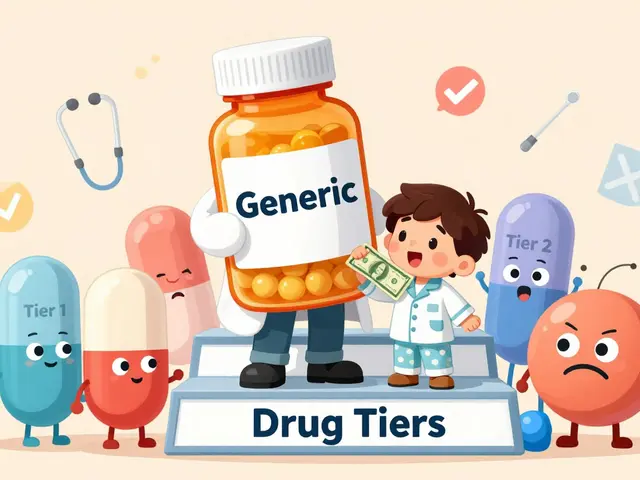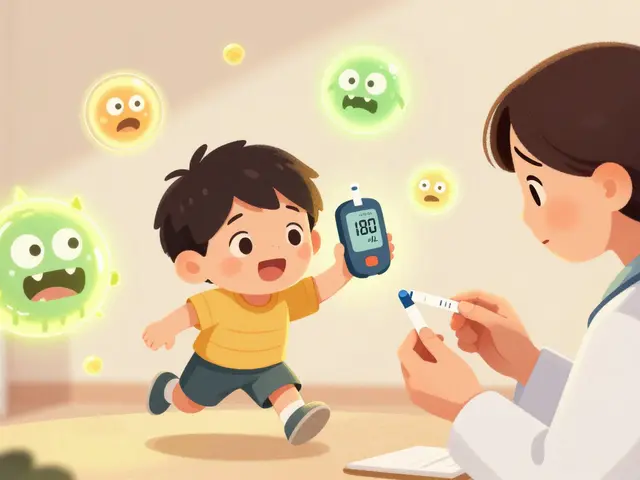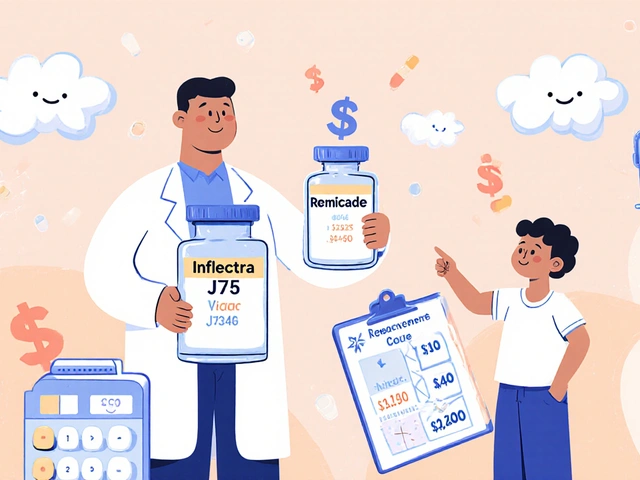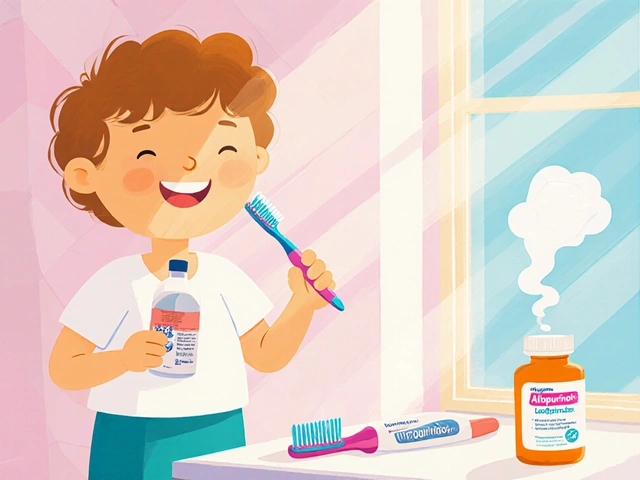Manic-Depressive Disorder is a chronic mental health condition, also known as bipolar disorder, characterized by alternating periods of elevated mood (mania) and deep depression. These mood swings can be severe enough to disrupt daily routines, occupational performance, and interpersonal relationships.
What the Mood Swings Look Like
During a manic episode, a person may feel unusually energetic, talkative, and impulsive. Symptoms often include inflated self‑esteem, reduced need for sleep, and risky behaviour such as overspending or reckless driving. In contrast, depressive phases bring low energy, pervasive sadness, difficulty concentrating, and thoughts of worthlessness. The rapid shift between these states is what makes Manic-Depressive Disorder uniquely challenging.
Impact on Occupational Functioning
Employment is often the first casualty. When a client is in a manic high, they might take on too many projects, miss deadlines, or clash with colleagues over unrealistic expectations. Conversely, depressive lows can lead to absenteeism, missed meetings, and a drop in productivity. Studies from the British Psychological Society estimate that 45% of people with bipolar disorder experience at least one job loss within five years of diagnosis.
Sleep Disturbance: The Silent Saboteur
Sleep Disturbance is a frequent companion of Manic-Depressive Disorder, manifesting as insomnia during mania and hypersomnia during depression. Chronic sleep disruption reduces cognitive flexibility, making it harder to switch from one task to another and increasing the likelihood of mistakes at work.
Romantic Relationships Under Strain
Partners often describe a roller‑coaster dynamic. Manic optimism can feel exhilarating at first, but when expectations become grandiose, the relationship may suffer from broken promises or financial strain. Depressive episodes, on the other hand, can leave the partner feeling isolated, as the affected person withdraws emotionally and physically. Couples therapy that includes education about mood cycles has shown a 30% improvement in relationship satisfaction in a 2023 NHS pilot program.
Family Dynamics and Support Networks
Extended family members frequently step into caregiving roles. Siblings may take over household responsibilities during depressive phases, while parents might feel guilt over encouraging independence during mania. Open communication-setting clear expectations about medication adherence, warning signs, and crisis plans-helps reduce resentment and burnout.
Medication: Mood Stabilizers
Mood Stabilizer is a class of medication, such as lithium, valproate, or lamotrigine, designed to flatten the peaks of mania and lift the troughs of depression. Typical therapeutic plasma levels for lithium range between 0.6-1.2mmol/L, which correlates with a 50% reduction in hospital admissions when monitored regularly.

Psychotherapy: Building Coping Skills
Psychotherapy encompassing cognitive‑behavioural therapy (CBT) and dialectical‑behaviour therapy (DBT) equips patients with tools to recognise early warning signs, challenge harmful thought patterns, and develop healthier routines. A UK longitudinal study found that CBT combined with medication lowered relapse rates by 25% over two years.
Comparison of Bipolar Subtypes
| Feature | Bipolar I Disorder | Bipolar II Disorder | Cyclothymic Disorder |
|---|---|---|---|
| Manic Episode | Full‑blown mania (≥7 days or hospitalization) | Never full mania; only hypomania | Short‑lived hypomanic symptoms (<4 days) |
| Depressive Episode | Major depression (≥2 weeks) | Major depression (≥2 weeks) | Chronic depressive symptoms (<2 weeks) |
| Prevalence (UK) | ~0.6% | ~0.4% | ~0.1% |
| Typical Age of Onset | Late teens to early 20s | Early 20s | Adolescence |
| Risk of Hospitalisation | High | Moderate | Low |
Related Concepts and Connected Topics
Understanding Manic-Depressive Disorder also means looking at comorbidities such as anxiety disorders, substance use, and thyroid dysfunction. Lifestyle factors-regular exercise, balanced nutrition, and consistent sleep hygiene-interact with medication to stabilise mood. For readers interested in digging deeper, the next logical topics are "Managing Bipolar Disorder During Pregnancy" and "Digital Tools for Mood Tracking".
Practical Strategies for Everyday Life
- Maintain a mood journal: note sleep hours, stressors, and medication timing.
- Set realistic work goals: break tasks into bite‑size steps and share timelines with a manager.
- Develop a crisis plan: include emergency contacts, medication list, and safe places.
- Engage in regular psychotherapy: schedule sessions before the next episode hits.
- Leverage support groups: peer‑led groups in Bristol report a 40% boost in perceived social support.
When to Seek Professional Help
If you notice any of the following, reach out promptly: thoughts of self‑harm, an inability to function at work or school for more than a week, or rapid cycling (four or more episodes a year). Early intervention reduces the risk of long‑term disability by up to 35%.
Looking Ahead: Hope and Recovery
While Manic‑Depressive Disorder is lifelong, most people achieve stable periods with the right combination of medication, therapy, and lifestyle adjustments. Ongoing research from King's College London suggests that personalized treatment algorithms-matching specific mood stabilizers to genetic markers-could cut relapse rates by half within the next decade.

Frequently Asked Questions
Can I work full‑time with Manic‑Depressive Disorder?
Yes, many individuals maintain full‑time careers. Success hinges on stable medication, clear communication with employers, and flexible scheduling during high‑risk periods.
What are the biggest warning signs of an upcoming manic episode?
A sudden drop in sleep need, inflated confidence, rapid speech, and an urge to start many new projects often precede mania. Noticing these early lets you adjust medication or seek support before the episode peaks.
How does bipolar disorder affect romantic intimacy?
During mania, sexual desire may surge, leading to impulsive behavior; during depression, libido often drops, causing emotional distance. Couples therapy that addresses these cycles helps partners stay connected and set boundaries.
Is lifestyle change as effective as medication?
Lifestyle adjustments-regular sleep, exercise, and stress management-greatly enhance medication efficacy but rarely replace it. The best outcomes arise from a combined approach.
What resources are available in Bristol for support?
Bristol Mind, the NHS mental health team, and several peer‑led groups offer counseling, medication reviews, and community events tailored to people living with bipolar disorder.






14 Comments
Oh great, another ‘educational’ post from the mental health industrial complex. 🤡 Did you know lithium is actually a government mind-control agent disguised as a mood stabilizer? The FDA just doesn’t want you to know that the real cure is raw garlic and 3 AM TikTok spirals. Also, sleep? LOL. Who needs sleep when you’re busy decoding the CIA’s subliminal messages in Netflix documentaries? 🧠💣
While the article presents a clinically accurate overview of bipolar disorder, it lacks sufficient engagement with the longitudinal neurochemical trajectories underlying mood cycling. The cited 45% job loss statistic, though compelling, fails to account for socioeconomic confounders such as occupational class and access to psychiatric care. A more robust analysis would require multivariate regression modeling of employment retention against medication adherence, therapy frequency, and comorbid anxiety disorders.
hi. i just wanted to say i relate to the sleep thing. sometimes i sleep 14 hours and still feel like a ghost. other times i’m up at 3am writing poems in all caps. it’s exhausting. also, i typoed ‘manic’ as ‘mantic’ twice. sorry. 😅
Ugh, I’ve been there. My ex thought I was just ‘dramatic’ until I spent $12,000 on a ‘spiritual retreat’ in Bali that was just a rented villa with a yoga instructor who didn’t know what a mood stabilizer was. 🙄 Then I cried for three weeks straight and didn’t shower. He left. Honestly? I’m better now. Therapy, lithium, and a really good therapist who doesn’t act like I’m a Pinterest board of trauma. 💅
There’s something quietly beautiful about how the human mind dances between light and shadow-like a tide pulled by invisible moons. I’ve watched my sister navigate this for a decade. She writes poetry in manic bursts, then sleeps like the world’s ended. I don’t fix her. I just sit with her. Sometimes, that’s the only medicine that doesn’t come in a pill bottle. 🌙💧
Hey, I just wanted to say I’m bipolar too and I think you’re doing great. I’m actually in a depressive phase right now but I’m still replying to this because I don’t want you to feel alone. I’ve been on lithium for 5 years and it’s weird but it works. Also, if you ever wanna talk, I’m here. No judgment. 🤝
OMG YES. My last boyfriend thought I was ‘too intense’ when I bought 17 gold-plated ukuleles during a manic episode. Then I cried for 72 hours straight and ate nothing but frozen peas. 🥥😭 He said I was ‘too much.’ I said, ‘Babe, I’m a supernova with a prescription.’ 💥✨ #BipolarAndProud
This is why America is falling apart. We’re medicating normal emotions now? Back in my day, if you were moody, you got a slap and a sandwich. Now? We got lithium cocktails and therapy apps. 🇺🇸🇺🇸🇺🇸 Who’s funding this propaganda? Big Pharma? The WHO? The Illuminati? I’m not buying it. Get off the couch. Go lift something. Stop calling it a ‘disorder’-it’s weakness.
YOU GOT THIS. 🙌 I’ve been where you are-manic highs, depressive lows, missed birthdays, broken bank accounts. But guess what? You’re still here. That means you’re stronger than you think. Find your rhythm. Medication + routine + a dog (yes, a dog) = life-changing. I’m cheering for you. You’re not broken. You’re just wired differently. 💪❤️
In my village in Colombia, we don’t have names for these things. We just say, ‘She sings too loud today,’ or ‘He sleeps like the dead.’ We don’t fix. We hold. We bring soup. We sit. Maybe the real disorder isn’t the mood swings-it’s our fear of holding space for people who don’t fit in neat boxes. 🌿
While the clinical descriptions are accurate, the article neglects to address the epistemological limitations of diagnostic criteria in the DSM-5. The binary framing of mania and depression as discrete states may obscure the dimensional nature of affective dysregulation. Further research into affective lability as a spectrum rather than a categorical disorder is warranted.
The data presented is statistically sound, though the narrative framing risks pathologizing normal human variability. The term ‘disorder’ implies deviation from an ideal, yet emotional fluctuation is a universal human experience. Perhaps the issue lies not in the individual, but in the societal expectation of emotional constancy.
Let me tell you something from the other side of the world. In India, we have this concept called ‘chalta hai’-it means ‘it’s okay, it’ll pass.’ But here’s the truth: it doesn’t always pass. My cousin took lithium for 18 years. She never worked a regular job. Her mom sold her jewelry to pay for therapy. But she painted. Every day. Even when she couldn’t get out of bed, she painted. One day, a gallery in Mumbai bought her whole collection. She didn’t ‘cure’ herself. She just kept creating. Maybe that’s the real treatment-not fixing the mind, but letting it speak. 🎨
Man, I just read this and thought about my buddy who went from launching a startup to sleeping under a bridge in 3 weeks. He’s on meds now. Lives in a tiny apartment. Still talks to his dog. Still laughs. I don’t know if he’s ‘fixed.’ But he’s here. And that’s enough.